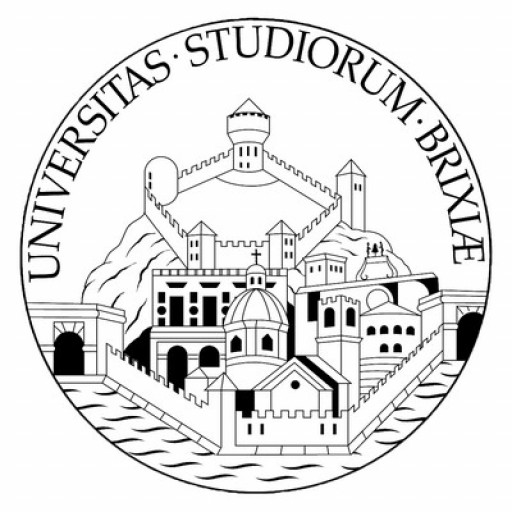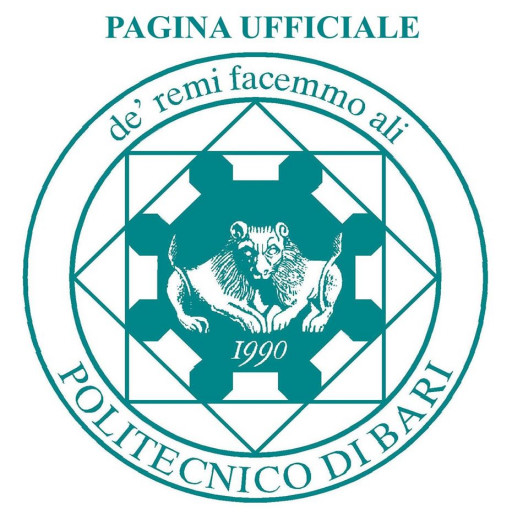Telecommunications study program at the Slovak University of Technology in Bratislava is designed to prepare students for a dynamic and rapidly evolving field that forms the backbone of modern communication infrastructure. This program offers a comprehensive education in the principles and technologies underlying telecommunication systems, including wired and wireless networks, data transmission, signal processing, and network security. Students will gain a solid foundation in mathematics, computer science, and electrical engineering, enabling them to develop, operate, and manage complex communication networks and services.
Throughout the program, students will explore various aspects of telecommunications such as digital communication, mobile and satellite systems, optical fibers, and broadband internet technologies. The curriculum emphasizes practical skills alongside theoretical knowledge, ensuring graduates are well-equipped to meet industry demands. Laboratory work, project-based assignments, and internships are integral components of the program, providing hands-on experience with modern telecommunications equipment and software tools.
The program also addresses emerging trends in the field, including the development of 5G networks, Internet of Things (IoT), cloud computing, and cybersecurity within telecommunication infrastructures. Students are encouraged to think critically about the societal, ethical, and environmental impacts of telecommunications technology, preparing them for responsible innovation and leadership in their future careers.
Graduates of the Telecommunications program at the Slovak University of Technology will be qualified for a wide range of careers in telecommunications companies, network providers, governmental agencies, and research institutions. They can work as network engineers, system analysts, security specialists, or project managers, among other roles. The program also provides a strong foundation for those interested in pursuing further research or doctoral studies in related fields.
Overall, the Telecommunications study program combines theoretical expertise with practical skills, fostering the development of innovative solutions to complex communication challenges. It aims to produce high-quality engineers capable of contributing to the advancement and security of global telecommunications infrastructure, supporting technological progress in society.
The Telecommunications study program at the Slovak University of Technology in Bratislava offers a comprehensive and multidisciplinary education designed to prepare students for dynamic careers in the rapidly evolving field of telecommunications. This program provides in-depth knowledge of modern communication systems, signal processing, wireless and wired networks, and the design and management of telecommunication infrastructure. Students will acquire a solid foundation in electrical engineering principles, computer science, and information technology, enabling them to develop innovative solutions for telecommunications challenges.
Throughout the program, students are introduced to the fundamental concepts of digital communications, network protocols, data transmission, and network security. They gain hands-on experience with the latest technological tools and software, preparing them for practical work in industries such as mobile communications, internet service providers, data centers, and satellite communications. Specializations within the program include wireless communication systems, optical fiber technologies, network management, and cybersecurity, reflecting current industry trends and demands.
The curriculum emphasizes both theoretical understanding and practical skills, integrating lectures, laboratory exercises, project work, and internships. Students have access to state-of-the-art laboratories equipped with modern telecommunications hardware and software. Additionally, the program fosters collaboration with industry partners, providing students with opportunities for internships, applied research, and participation in real-world projects.
Graduates of the Telecommunications program are well-equipped to pursue careers in designing, operating, and managing complex telecommunication networks. They can work in telecommunications companies, broadcasting organizations, government agencies, and technology firms. Furthermore, the program offers a strong foundation for those interested in pursuing postgraduate studies or engaging in research activities in telecommunications, information technology, or related fields. Overall, the program prepares students to become innovative engineers capable of contributing to the development of cutting-edge communication technologies, ensuring reliable and efficient connectivity in an increasingly digital world.
Admission to the Telecommunications program at the Slovak University of Technology in Bratislava requires applicants to have completed secondary education and meet the general admission criteria set by the university. Prospective students must submit an application form, along with certified copies of their secondary school leaving certificate and transcripts. The selection process emphasizes academic achievement in relevant subjects such as mathematics, physics, and information technology. Prior knowledge or experience in electronics, telecommunications, or computer science is advantageous. International students are typically required to provide proof of language proficiency in English, such as a TOEFL or IELTS score, unless they have completed secondary education in an English-speaking country or at an institution where English is the medium of instruction. Additionally, some programs may require entrance examinations or interviews to assess the applicant’s technical understanding and motivation for studying telecommunications. The program is designed to admit students with a strong foundation in analytical and technical skills, thus applicants with prior coursework or work experience in related fields may have an advantage. The university also considers extracurricular involvement in relevant projects, internships, or competitions as part of the holistic admission process. All candidates must comply with the application deadlines published by the university, which typically include the submission of all required documents and application fees. International students should also check for any visa requirements or additional documentation needed for study authorization in Slovakia. Once admitted, students are required to attend an orientation session, and participate in a series of introductory courses to familiarize themselves with the university's academic policies and program structure. The curriculum emphasizes both theoretical foundations and practical skills in telecommunications, including network design, signal processing, mobile communications, and cybersecurity. Graduates are expected to demonstrate proficiency in designing, analyzing, and managing modern telecommunication systems, as well as complying with industry standards and regulations. Overall, the program aims to prepare students for successful careers in telecommunications industries, research institutions, or for further academic pursuits.
The financing of the Telecommunications program at the Slovak University of Technology in Bratislava is primarily supported through a combination of governmental funding, tuition fees paid by students, and various grants aimed at promoting technical education and research. As a public university, the Slovak University of Technology relies significantly on state budget allocations provided by the Slovak Ministry of Education, Science, Research and Sport, ensuring the continued development of its programs and infrastructure. These funds cover a substantial portion of the operational costs, including faculty salaries, laboratory equipment, and technological advancements essential for delivering up-to-date telecommunications education.
Tuition fees constitute an important source of income for the program, and they are primarily paid by domestic and international students enrolled at the university. The fees are set according to the regulations of the Slovak government’s higher education policy and vary depending on the student’s nationality and degree level. For international students, fee structures are typically higher, and the university offers various scholarship opportunities to attract talented individuals from abroad, supporting both their studies and research activities.
Additionally, the university actively participates in European Union funded programs such as Horizon Europe, Erasmus+, and other research grants, which provide supplemental financing for innovative projects, infrastructure upgrades, and faculty development within the telecommunications domain. These grants enable the university to stay at the forefront of technological advancements and foster international collaboration.
Research projects within the telecommunications program sometimes involve private industry partners, which also contribute funding through sponsorship or cooperative development agreements. These collaborations not only provide financial support but also facilitate practical training opportunities for students and exposure to current industry standards.
Furthermore, the Slovak University of Technology maintains partnerships with technology companies and industry leaders, which sometimes offer scholarships, research grants, or sponsorships dedicated specifically to the telecommunications program. Such industry involvement ensures that the program remains relevant and aligns with current technological trends and market demands.
The university also provides partial financial support in the form of scholarships and stipends based on academic performance, social needs, or research excellence. These financial aids are aimed at reducing the economic burden on students and promoting academic and research excellence in the telecommunications field.
Overall, the financing of the Telecommunications program is a multi-source model, integrating government support, student fees, EU grants, industry sponsorships, and private contributions. This diversified funding structure allows the program to maintain high-quality education, invest in cutting-edge research, and support students throughout their academic journey.
The Telecommunications program at the Slovak University of Technology in Bratislava offers students comprehensive education in the field of modern communications, networking, and information technology. This program is designed to prepare graduates for a career in designing, implementing, managing, and maintaining complex telecommunication systems and networks. The curriculum covers a broad spectrum of subjects, including signal processing, digital communication, wireless networks, data transmission, network security, and emerging areas such as 5G technology and IoT (Internet of Things). Students gain theoretical knowledge alongside practical skills through laboratory exercises, project work, and internships with industry partners.
The program emphasizes interdisciplinary learning, combining principles from electrical engineering, computer science, and information technology to equip students with the ability to develop innovative telecommunication solutions. Students also have the opportunity to specialize in specific areas such as network infrastructure, broadband access, or mobile communication systems. The language of instruction is primarily English, facilitating international cooperation and student exchange programs.
Graduates of the Telecommunications program are well-prepared to enter the workforce in various sectors including telecommunications service providers, information technology companies, research institutes, and governmental agencies. They may work as network engineers, system architects, security analysts, or project managers. The program also provides a solid foundation for those wishing to pursue further studies at the master's or doctoral level, either at the Slovak University of Technology or abroad. The university maintains strong links with industry to ensure the curriculum remains aligned with current technological advancements and market demands. Overall, the program aims to produce highly skilled professionals capable of contributing to the development of telecommunication infrastructure and services both regionally and globally.









